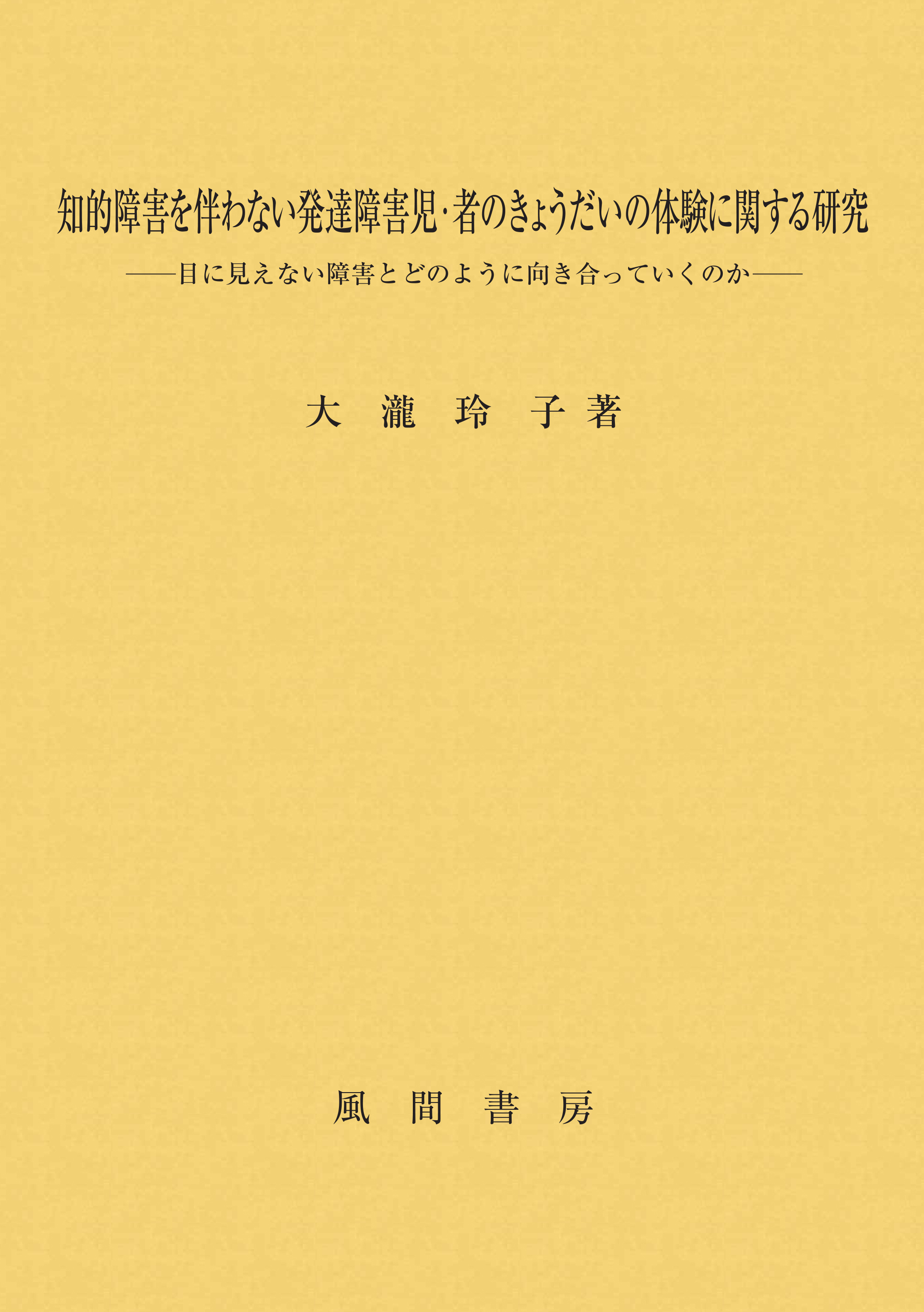
Title
Chiteki-Shogai o tomonawanai Hattatsu-Shogaiji-sha no Kyodai no Taiken ni kansuru Kenkyu (Research on the Experiences of siblings of people with mild developmental disabilities - How to cope with invisible disabilities)
Size
368 pages, A5 format
Language
Japanese
Released
March 31, 2020
ISBN
978-4-7599-2324-7
Published by
Kazamashobo
Book Info
See Book Availability at Library
Chiteki-Shogai o tomonawanai Hattatsu-Shogaiji-sha no Kyodai no Taiken ni kansuru Kenkyu
Japanese Page
Recent years have seen a growing awareness of the need to support the families of children and individuals with developmental disorders. Much of this support targets the parents of individuals with developmental disorders, while only a small portion targets healthy siblings. Focusing on children and individuals with “mild”(imply disabilities without an intellectual disability) ,developmental disorders who do not appear different from their healthy siblings, this book sheds light on the experiences of healthy siblings and, thereupon, examines the potential for support targeting siblings.
Three characteristics distinguish this book from others. The first characteristic is the book’s focus on the visibleness of disability. By comparing the experiences of siblings of people with developmental disorders of differing degrees, the book examines the impact on siblings of “mild” disabilities such as ADHD and autism spectrum disorders that are not readily apparent to others and clarifies the topography of multiple impacts that this lack of visibleness has on the individuals themselves, their families, and society.
The second characteristic is the book’s focus on the siblings of people with mild developmental disabilities as their stories?
tojisha (individuals involved in the situation) and its employment of qualitative analysis to clarify the uniqueness and diversity of their experiences. The book systematically collects and qualitatively analyzes data related to the experiences of siblings people with mild developmental disabilities, which have only been reported anecdotally up to this point. The significance of this book lies in its presentation of recommendations regarding the type of supported needed for siblings by elucidating the experiences of children and people with “mild” developmental disabilities not accompanied by intellectual disability.
The third characteristic is the book’s use of life-cycle and family system perspective as theoretical frameworks. Up to now, discussion on the families of people with disabilities centered on mothers as the main care givers; while siblings were considered peripherally if they were considered at all. However, the experiences of siblings related to disability are largely rooted in family relationships, and it is necessary to consider siblings as tojisha (individuals involved in the situation) who also require social support and to have the perspective of supporting the relationships that the siblings experience in everyday life. Accordingly, the book conceptualizes the families of people with disabilities as a single system that includes healthy siblings and attempts to deepen our understanding of the role played by siblings of children and individuals with disabilities within this system.
The core of this book is its use of sibling lifecycle as a framework for examining the question of what is means to have a sibling with an invisible disability. Particularly in the later chapters, by examining the subjects’ life stories, the book does not linger on the moment of discovery of a sibling’s disability but, rather, goes on to depict the changing experiences of siblings over the course of their lifecycles, including the struggles of siblings as they attempt to establish new relationships as they reach adulthood, become independent, gain employed, become married, experience various life events, and undergo transitions in roles as their parents enter old age. I would be most pleased if this book serves to deepen our understanding of the experiences of siblings of people with disabilities as they grow up beside and form relationships with their disabled siblings while also trying to live their own lives and to deepen our understanding of how to support sibling relationships in the context of diverse siblings’ experiences.
(Written by: OTAKI Reiko / April 02, 2021)



